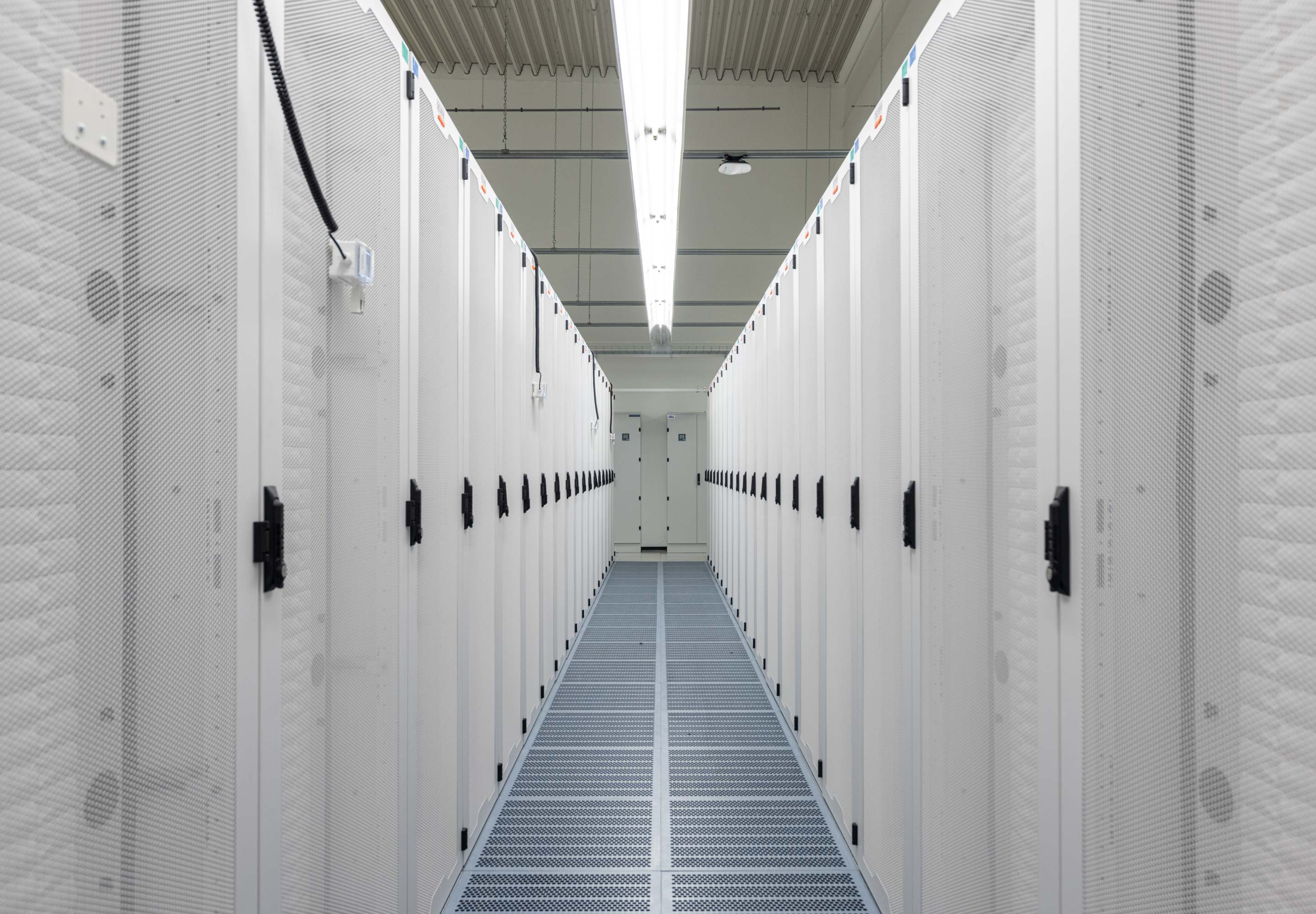-
Featured services
Think beyond the robots
The successful integration of AI and IoT in manufacturing will depend on effective change management, upskilling and rethinking business models.
Read the blog -
Services
View all services and productsLeverage our capabilities to accelerate your business transformation.
-
Services
Network Services
-
Services
Cloud
-
Services
Consulting
-
-
Services
Data and Artificial Intelligence
- AI and Intelligent Solutions
- Data/AI Strategy and Program
- Data Engineering and Platforms
- Data Governance and Management
- Data Visualization and Business Decision
- GenAI Consulting
- GenAI Platforms
- GenAI Industry Services
- GenAI Infrastructure Services
- GenAI Value Transformation
- View Data and Artificial Intelligence
-
Services
Technology Solutions
-
Services
Global Data Centers
-
Services
CX and Digital Products
-
Services
Application Services
-
Services
Sustainability Services
-
Services
Digital Workplace
-
Services
Business Process Services
-
Services
Generative AI
-
Services
Cybersecurity
-
Services
Enterprise Application Platforms

Accelerate outcomes with agentic AI
Optimize workflows and get results with NTT DATA's Smart AI AgentTM Ecosystem
Create your roadmap -
-
-
Insights
Recent Insights
-
The Future of Networking in 2025 and Beyond
-
Using the cloud to cut costs needs the right approach
When organizations focus on transformation, a move to the cloud can deliver cost savings – but they often need expert advice to help them along their journey
-
Make zero trust security work for your organization
Make zero trust security work for your organization across hybrid work environments.
-
-

Master your GenAI destiny
We’ll help you navigate the complexities and opportunities of GenAI.
Explore GenAI -
-
Master your GenAI destiny
We’ll help you navigate the complexities and opportunities of GenAI.
Explore GenAI -
Discover how we accelerate your business transformation
-
About us
CLIENT STORIES
-
Liantis
Over time, Liantis – an established HR company in Belgium – had built up data islands and isolated solutions as part of their legacy system.
-
Randstad
We ensured that Randstad’s migration to Genesys Cloud CX had no impact on availability, ensuring an exceptional user experience for clients and talent.
-
-
CLIENT STORIES
-
Liantis
Over time, Liantis – an established HR company in Belgium – had built up data islands and isolated solutions as part of their legacy system.
-
Randstad
We ensured that Randstad’s migration to Genesys Cloud CX had no impact on availability, ensuring an exceptional user experience for clients and talent.
-

Everest Group PEAK Matrix® Assessment
NTT DATA is a Leader and Star Performer in the Everest Group Sustainability Enablement Technology Services PEAK Matrix® Assessment 2024.
Get the Everest report -
- Careers
Topics in this article
Building and operating data centers is complex, but colocation offers many benefits – beyond time and cost savings
Alongside advances in digitalization, companies are rapidly becoming more dependent on their digital infrastructures. Individual servers or small server rooms are often no longer able to meet the high demands for security and availability – full-fledged data centers that are well protected and highly reliable are needed. However, many companies don’t want to manage the construction and operation of these data centers themselves, so they rent premises from specialized providers. Already, 40% of the total data center capacity in Germany uses colocation services like these, and the trend is upward. Here are the benefits of placing your own server and storage systems with an external partner:
- Time and cost savings: Building a data center is costly and takes several years, not least because of the complex and time-consuming approval processes. Since companies typically need the new capacity quickly, renting from a colocation provider is often the faster and cheaper alternative. Many companies also do not own suitable land for a data center and purchasing the right land leads to further costs and delays.
- Professional operation: Few companies are actually in a position to guarantee the smooth 24/7 operation of a data center. Due to a lack of skilled staff, the majority operate with low staffing levels and are often unable to react immediately in the event of problems. Colocation providers have both a sufficient number of highly skilled employees and years of proven and continuously optimized concepts to operate and protect the facilities.
- High levels of availability: When IT systems fail, internal processes stop and online stores or other digital offerings can no longer be accessed by clients. In order to avoid the associated loss of revenue and reputation, organizations are dependent on high IT availability. Data center providers create the basis for this with extensive technical and organizational measures such as redundant cooling systems, high-performance fire protection systems and a reliable emergency power supply. Companies are rarely able to achieve comparable availability levels in their own data centers.
- IT compliance: Many industries need to meet strict regulatory requirements for resilience and protection of their digital infrastructures. Designing your own data centers accordingly and acquiring the required certifications is a lengthy process. Data center providers already hold industry-standard certifications, thereby providing organizations with planning security if, for example, new business models or digital services mean they need to change their requirements. In addition, colocation companies are making it much easier to implement disaster recovery strategies by having data centers in geographically separate locations.
- High flexibility: Due to the digitization of internal processes and the development of digital business models, the requirements for the IT infrastructures of companies are changing rapidly. Colocation means that they can also respond quickly to greater power requirements and growing data volumes and accommodate new server and storage systems in suitable premises. The majority of providers operate multiple data centers, so a location near your own offices or close to important clients can be chosen to minimize network latency.
- Excellent connectivity: Colocation data centers are typically not only redundantly connected to the internet and large internet nodes multiple times, but often also have a direct connection to leading cloud-, telecommunications network- and IT service providers. The guaranteed bandwidth and latencies make it easy for organizations to adopt SaaS offerings and implement hybrid cloud concepts. These levels of connectivity are difficult for in-house data centers to achieve, and typically would involve excavation work to lay new lines.
- Sustainability: Building multiple small data centers consumes more resources than building a large facility with similar capacities. The colocation providers’ facilities are therefore usually more sustainable than company data centers. This also applies to operations, where scaling effects ensure, for example, more efficient cooling and emergency power supply. In addition, service providers are continuously optimizing operations and investing in research and development, which is usually not profitable for a single company with its own data center. This makes colocation a much easier way for companies to achieve their sustainability goals.
“The construction and operation of a data center is complex and requires extensive expertise. Even modernizing or expanding an existing facility can be very costly and take a long time,” says Konstantin Hartmann, Vice President Sales & Commercial of the Global Data Centers Division of NTT Ltd. in EMEA. “Colocation means that companies can avoid financial risk and benefit from the high availability and excellent connections of specialized service providers. Even large cloud providers want to take advantage of these benefits and rely heavily on colocation. It does not always have to be an either/or situation: Colocation can supplement the on-premises data center if it no longer has sufficient capacity or a second location is needed for geo-redundant high availability.”
Please contact our data center experts to talk about your colocation needs by phone at +49 69 7801-2190, by email at dc.emea.sales@global.ntt or via the contact form. We look forward to hearing from you.

